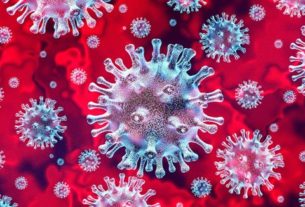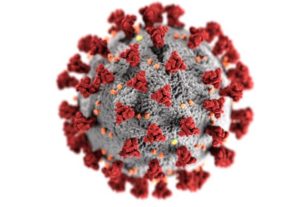From Our Bureau
11TH JUNE 2020
The Corona Virus (COVID-19) pandemic situation remained grim globally, with the confirmed cases across the world soaring to 72,73,958 and the death toll reaching 4,13,372 in the 216 affected countries and territories, according to the latest update from the World Health Organization (WHO).
Globally, American region turned to be the worst-hit with 34,85,245 confirmed cases and 1,89,544 deaths. Europe came next with 23,39,145 confirmed cases and 1,86,326 deaths. Eastern Mediterranean region reported 6,96,841 confirmed cases and 15,581 deaths.
South-East Asia region’s tally stood at 4,07,414 confirmed cases and 11,171 deaths. Western Pacific region recorded 1,94,470 confirmed cases and 7,144 deaths and African region registered 1,50,102 confirmed cases and 3,593 deaths. WHO Risk Assessment at global level remained very high.
The WHO Regional Director for the Eastern Mediterranean, Dr Ahmed Al-Mandhari, has released a statement on the status of the pandemic in the Region. He warns that cases in the region have increased during the past three weeks and there is the risk cases will continue to increase as many countries ease restrictions. He reiterated that every country’s best defense against COVID-19 is to find, isolate, test and care for every case and to trace and quarantine every contact.
Somalia is expanding its Early Warning, Alert and Response Network (EWARN) across the country to facilitate early detection of suspected cases of COVID-19. WHO will be supporting the roll out of the EWARN system to an additional 230 health centres beyond the current 533 reporting sites, with COVID-19 now being a reportable health condition in Somalia.
Meanwhile, at the media briefing on 10th June, WHO Director-General Dr Tedros Adhanom Ghebreyesus said “Although COVID-19 is giving us many reasons to grieve, today we’re also celebrating a public health victory. Yesterday, the World Trade Organization ruled that Australia’s laws on plain packaging for tobacco products are justified, and are not unfair restrictions on trade.”
“Tobacco kills more than 8 million people every year, and Australia was the first country in the world to introduce plain packaging, without branding, in 2012. Several other countries have since introduced similar laws. The tobacco industry has done everything it can to have these laws overturned, including challenging them at the World Trade Organization,” he recalled.
“Effectively, yesterday’s WTO ruling means the tobacco industry has run out of options to challenge plain packaging internationally. WHO congratulates Australia for this victory, and we’re proud that legal experts from WHO and the Framework Convention on Tobacco Control supported Australia in this case. We will continue to support other countries to introduce plain packaging, as one of many proven tools to save lives from tobacco,” he added.
“I have spoken about humility a number of times over the last few months and I think it’s fair to say that this microscopic virus has humbled all of us. By definition, a new virus means that we’re learning as we go. We have learned a lot, but there’s still a lot we don’t know. Every week we speak directly to countries, the media and the public so that we can keep everyone up to date on the latest scientific evidence and the evolution of the pandemic.
“Since early February, we have said that asymptomatic people can transmit COVID-19, but that we need more research to establish the extent of asymptomatic transmission. That research is ongoing, and we’re seeing more and more research being done. But here’s what we do know: that finding, isolating and testing people with symptoms, and tracing and quarantining their contacts, is the most critical way to stop transmission. Many countries have succeeded in suppressing transmission and controlling the virus doing exactly this.
“This is a new virus, and we are all learning all the time. Communicating complex science in real time about a new virus is not always easy, but we believe it’s part of our duty to the world. And we can always do better. We welcome constructive debate, and that’s how science advances. WHO’s advice will continue to evolve as new information becomes available.
“We continue to work 24/7 to accelerate the science and learn more about how the disease is spread, what best practice contact tracing looks like, as well as the development of new treatments and vaccines. We’ll continue to talk to our Member States, the media and the general public about what we know and where there are gaps in evidence and how that is shaping our thinking. We’ll explain what we know, what we don’t know and what we’re doing to find out more. We always aim to be clear about evolving science, and we’re committed to accountability for everything we do and say.
“This morning, I met virtually with WHO’s interns from many countries. I was not only struck by their creativity, energy and positivity, but also how freely they discussed the lessons they have learned. Interns are a vital part of WHO’s workforce. Just as they learn from us, we learn from them.
“As part of WHO’s transformation, as you may know, we have been overhauling our intern programme to increase the diversity of our interns and make it possible for more young people from more countries to take an internship at WHO, especially young people from low- and middle-income countries who couldn’t get the chance to join WHO as interns because of financial problems.
“I’m really glad to see that the number of people we’re receiving from low- and middle-income countries has increased, and the diversity of our interns has actually improved significantly. We’re also working hard to improve conditions for our interns. We now provide interns with health insurance, and this year we started paying interns a stipend for the first time, and it’s the stipend which is actually helping improve the diversity because we’re getting more people from disadvantaged countries.
“We’re committed to investing in young health leaders, who will build the healthier, safer, fairer world we all want for our children and grandchildren,” the WHO Director-General observed. (eom)


